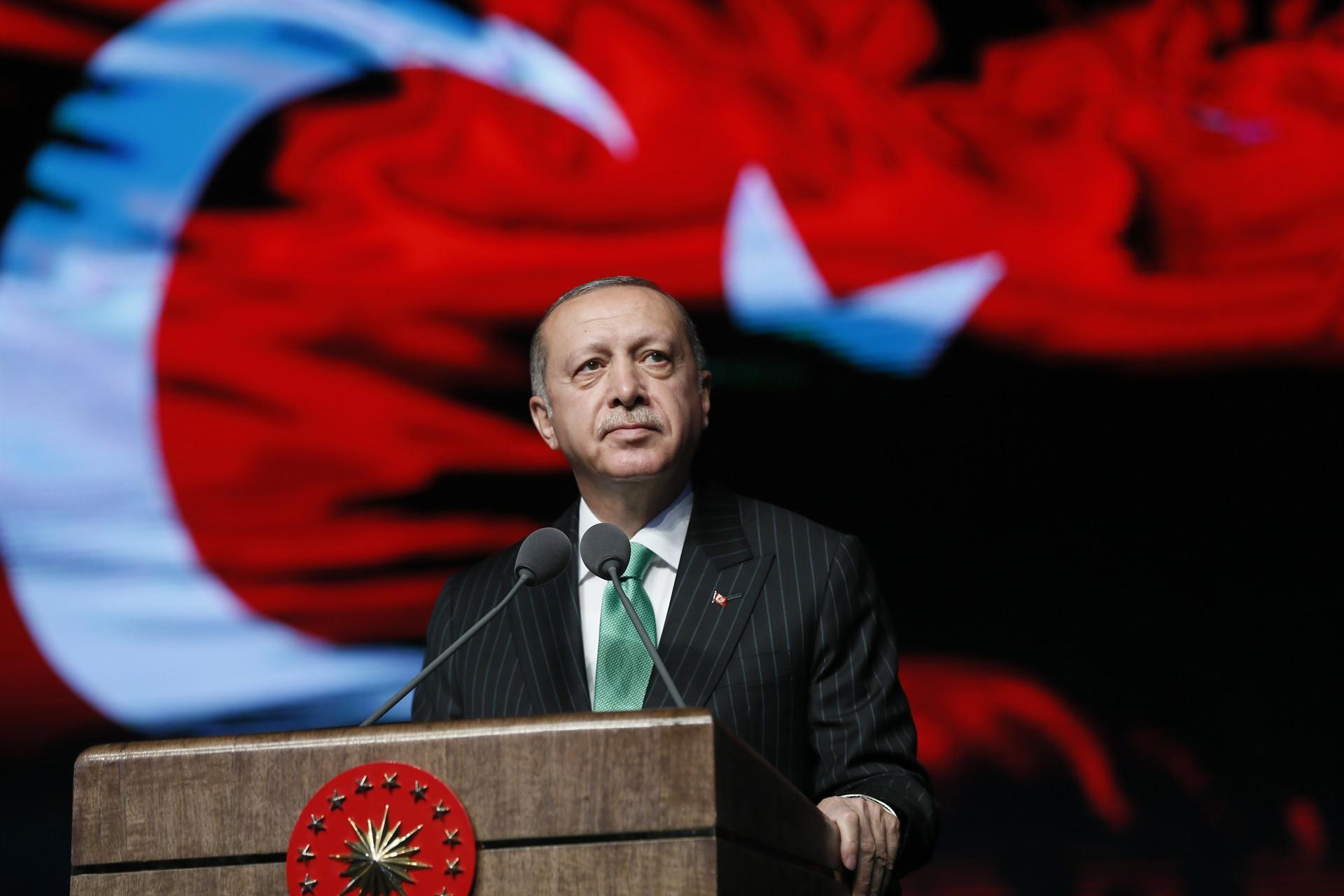
Turkish President Recep Tayyip Erdoğan has described the agreement between Turkey and Russia to establish a demilitarized zone in Syria’s northwestern province of Idlib as “a step toward peace.”
“The defense ministers of both sides signed a document. It is to stop bloodshed in Idlib. There are 12 articles in the signed agreement. This is a step toward peace beyond our border,” Erdoğan said at the War Veterans Day ceremony at the presidential complex in Ankara on Sept. 19.
Following a meeting in the Russian city of Sochi between Erdoğan and his Russian counterpart Vladimir Putin, the two countries agreed Sept. 17 to establish a demilitarized zone in Idlib, Syria’s last opposition stronghold.
According to the memorandum of understanding, opposition groups in Idlib will remain in areas in which they are already present, while Russia and Turkey will conduct joint patrols in the area with a view to preventing renewed fighting.
Located near the Turkish border, Idlib province is home to more than 3 million Syrians, many of whom fled from other cities following attacks by regime forces.
The Syrian regime had announced plans last month to launch a major military offensive in the area, which has long been controlled by various armed opposition groups.
The U.N. had warned that such an offensive would lead to the “worst humanitarian catastrophe in the 21st century.”
A U.N. representative for Syria on Sept. 18 praised the agreement reached between Russia and Turkey.
“We hope that this agreement is expeditiously implemented,” Staffan de Mistura, the U.N.’s special envoy for Syria, told the Security Council. “I thank presidents [Vladimir] Putin and [Recep Tayyip] Erdoğan for their personal engagement.”
De Mistura urged all parties in the Syrian conflict “to refrain from military actions” that could derail the agreement.
“What do we think the 3 million civilians, including those million children kettled there, make of yesterday’s agreement?” he asked. “Well, they have a simple question. Is this merely a stay of execution? Or is it the beginning of a reprieve, the first tiny glint of light at the very end of the darkest tunnel?”